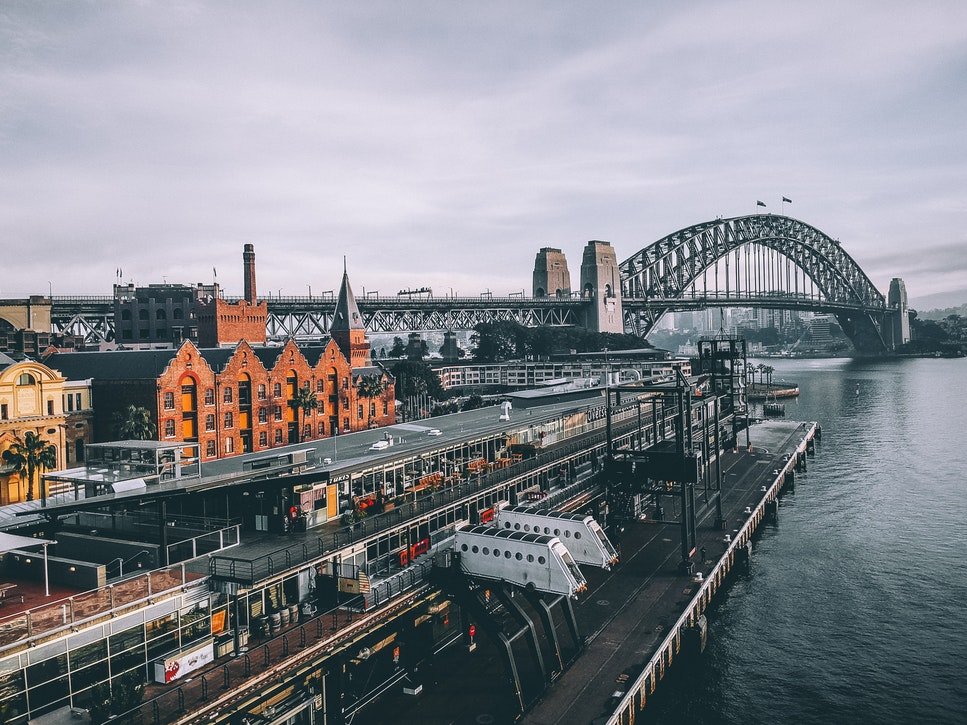Business
Is the Australian real estate market in a bubble?
The Australian real estate market is showing signs of a downturn. Global real estate investors would do well to pay attention before the damage starts to spread.

Real estate markets around the globe have been heating up in recent months, with no immediate signs of slowing down. For homeowners and other property investors, that has been great news. Some have held their positions since before the 2008 economic crisis wiped out trillions of dollars in real estate equity, and are only now recovering from their losses. The booming market isn’t making everyone happy, though.
Many analysts are watching global real estate markets carefully for signs that we may be in yet another real estate bubble. If we are, the global economy might be setting itself up for yet another calamitous fall in the coming months. For nervous investors and homeowners looking to time the market for maximum gain, there’s one nation, in particular, that might serve as a canary in the coal mine–Australia.
A red-hot market
The reason that Australia’s housing market makes for a useful indicator of global market trends is that it has remained hot for the longest sustained period of any large market, there are some growing signs of trouble, and the global market tends to move in cycles. At the time of this writing, the UBS Global Real Estate Bubble Index has Sydney, Australia, listed at a 1.80 risk score, which places it among the highest-risk markets in the world. It has been that way for decades, with the city posting an average real annual price rise of 3.5 percent since 1980. That is the longest sustained growth of any major real estate market globally. Lately, though, there have been some worrisome signs.

Prices of real estate housing in Sydney have significantly dropped to accommodate the purchasing power of low-income earners. (Source)
Weakening fundamentals
In Sydney, much like most of the rest of Australia, home prices seemed to know no other direction but up. Australian real estate agents faced some of the greatest competition for customers, despite the enormous volume of sales that occurred there on a yearly basis. Recently, though, the Sydney real estate market has seen something it’s not accustomed to—falling prices. It seems that foreign investors, a key source of support for the surging market, have been leaving in droves in the past few months. That has left the market to native-born purchasers, who have been constrained by historically low wage growth. It’s also quite concerning that there are signs that banks are loosening mortgage standards to make up for the softening local demand.
A repeat performance
If the conditions in the Australian real estate market sound familiar, they should. They’re an almost perfect duplicate of the conditions in the U.S. real estate market just before the 2008 crash. That comparison should give Australian real estate investors a pause as they consider their positions in the weakening market. For investors in other markets, though, it makes it a good idea to watch the trends taking hold in Australian real estate in the coming months. If a sharp downturn begins, it might just be a portent of a similar wave sweeping across the globe.
Global ramifications
There is every reason to believe that a collapse of housing prices in the Australian market will spread well beyond the nation’s borders. An International Monetary Fund study has found a strong correlation in housing prices around the globe, owing to shifting foreign investments from locale to locale. That’s the same effect that Australia’s market is feeling right now, as foreign investors look for greener pastures. It was also the reason for a dramatic rise, and then a fall of real estate values across several Canadian markets in previous years.
Right now, foreign investment is surging in the U.S. real estate market, too. When foreign investments dry up there, the global economy will be at another crossroads. To avoid the precipitous fall that will accompany that shift, pay attention to the alarm bells that may soon be ringing out across the Australian real estate market – and get out while you can.
—
DISCLAIMER: This article expresses my own ideas and opinions. Any information I have shared are from sources that I believe to be reliable and accurate. I did not receive any financial compensation in writing this post, nor do I own any shares in any company I’ve mentioned. I encourage any reader to do their own diligent research first before making any investment decisions.

-

 Impact Investing1 week ago
Impact Investing1 week agoClimate Losses Drive New Risk Training in Agriculture Led by Cineas and Asnacodi Italia
-

 Crowdfunding6 days ago
Crowdfunding6 days agoReal Estate Crowdfunding in Mexico: High Returns, Heavy Regulation, and Tax Inequality
-

 Africa2 weeks ago
Africa2 weeks agoAgadir Allocates Budget Surplus to Urban Development and Municipal Projects
-

 Cannabis3 days ago
Cannabis3 days agoSouth Africa Proposes Liberal Cannabis Regulations with Expungement for Past Convictions

























You must be logged in to post a comment Login